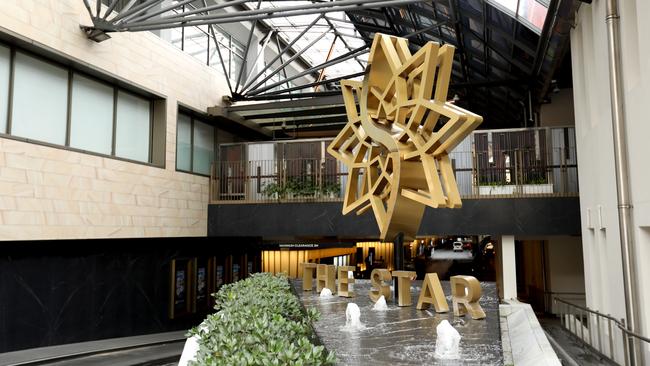
Star Entertainment is widely expected to launch an equity raising on the back of its latest earnings update and some suspect that about $500m is the amount that the company is likely searching for.
Star’s earnings update and outlook statement issued on Monday was perceived as a potential cleansing statement ahead of a move to raise capital.
The Australian listed casino operator declined to comment.
However, it’s estimated around the market that Star’s fines from industry regulator Austrac and class actions linked to its breach of anti-money laundering and counter-terrorism financing laws will likely cost between $300m and $400m.
When Star made a play for rival Crown resorts in 2021, it worked with Credit Suisse and has also had investment bank Barrenjoey in its corner.
Monday’s update that said it would have a $400m to $1.6bn impairment on its Sydney casino could demonstrate reserves to pay those fines are gone.
Before the extent of those costs are known, one source said the company was already moving close towards breaching debt covenants with its banks.
The covenant is 3.75 times its earnings before interest, tax, depreciation and amortisation, and with the latest earnings prediction, it was between 3.5 times and 4 times.
Its net debt was $1.15bn at June 30 and its share price on Monday was down 20 per cent to $1.48, taking its market value to $1.78bn.
Compounding problems is the proposed NSW state government tax for poker machines and casinos.
Star said it expects to report underlying EBITDA of $195m to $205m in the first half of 2023, excluding provisions for fines and one-off legal costs which will be treated as significant items.
It also expects to report underlying EBITDA of $330m to $360m for the year to June 2023.
The company said it would review its operating model and assets, with a view of maximising value for the group’s shareholders.
Yet an outright sale of its Pyrmont casino site is believed to be off the agenda.
It may, however, sell the $200m-plus carpark, which had been on the table before, or a stake in casino assets in Sydney or Queensland to a real estate group like Charter Hall.
Yet real estate sales take a longer time to get money through the door than a cash call.
Convertible bonds are also a tough ask in the current market conditions.
Star has been under pressure to make operational changes following the Austrac probe, which are set to be costly going forward, and Crown’s Sydney casino creates increased competition.
It has spent $20m on compliance in the half year, with third-party consultants and the hiring of additional staff.
Its bright light is the strong performance of its Queensland casinos, but construction cost blowouts at its Brisbane casino have hurt the operator.
The other company being closely watched for an equity raising is Lendlease, which this column flagged late last year.
It posted a $141m loss for the six months to June and issued a $200m provision against its unit in Britain, and while an unexpected capital raise would be bad news for boss Tony Lombardo, it may prove to be inevitable.







To join the conversation, please log in. Don't have an account? Register
Join the conversation, you are commenting as Logout